Walter Scott
Advocate, Author, Critic
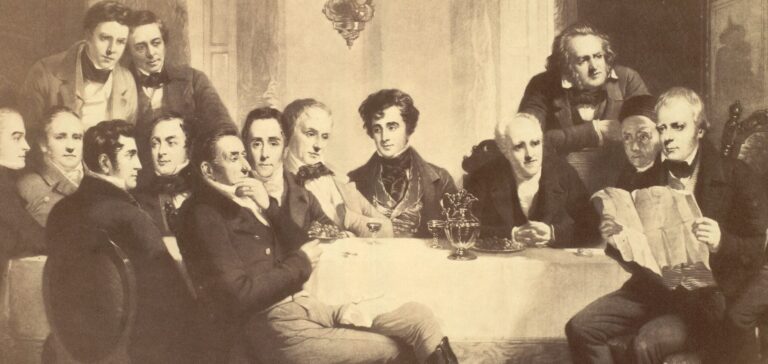
Walter Scott, poet, novelist, advocate, sheriff, and legal administrator was one of the key figures in literary Edinburgh. His poetry and novels far outsold any of his rivals and his works are among the most borrowed in the Books and Borrowing study.
Image: Sir Walter Scott and his Literary Friends at Abbotsford, 1854, engraved by James Faed after a painting by Thomas Faed
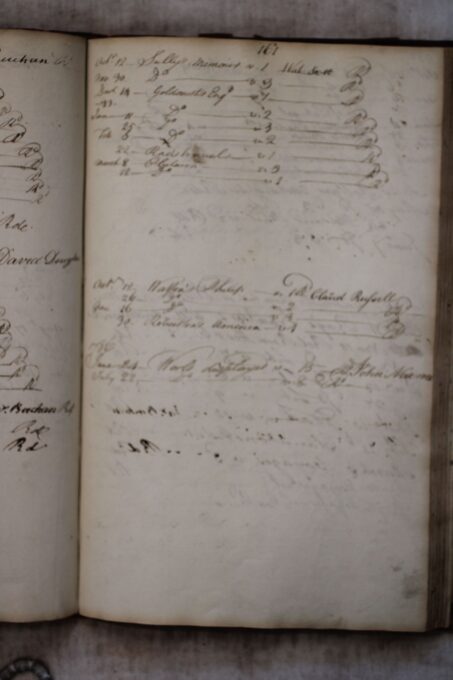
Introducing a late edition of his poem Rokeby, Scott asserted that 'the natural pleasure of every man who has been a reader' was 'filling the shelves of a tolerably large library'. Scott's love of reading began early - he was often unwell as a child, and books were his constant companions. He collected books throughout his life and borrowed voraciously from the libraries he had access to. Groaning shelves of books contributed to his historical research for poems and novels, his many editorial projects, and his substantial debts.
|
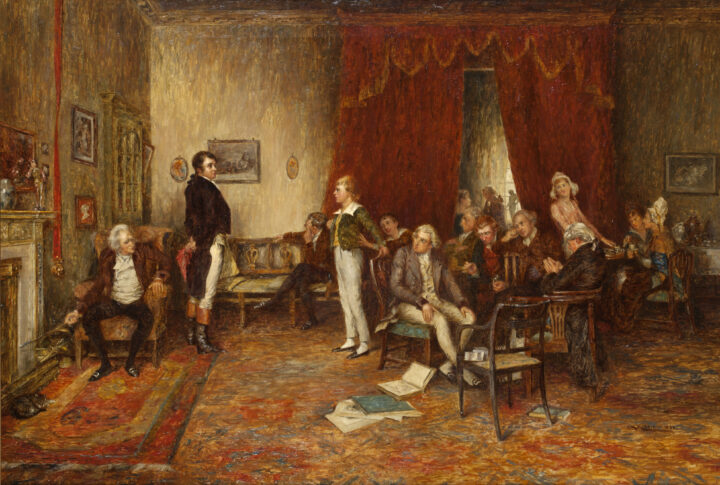
Young Scott had an awe-inspiring encounter with Robert Burns: ‘I was a lad of fifteen in 1786-7, when he came first to Edinburgh, but had sense and feeling enough to be much interested in his poetry, and would have given the world to know him, but I had very little acquaintance with literary people … As it was, I saw him one day at the late venerable Professor Ferguson’s, where there were several gentleman of literary reputation, among whom I remember the celebrated Mr Dugald Stewart’.
|
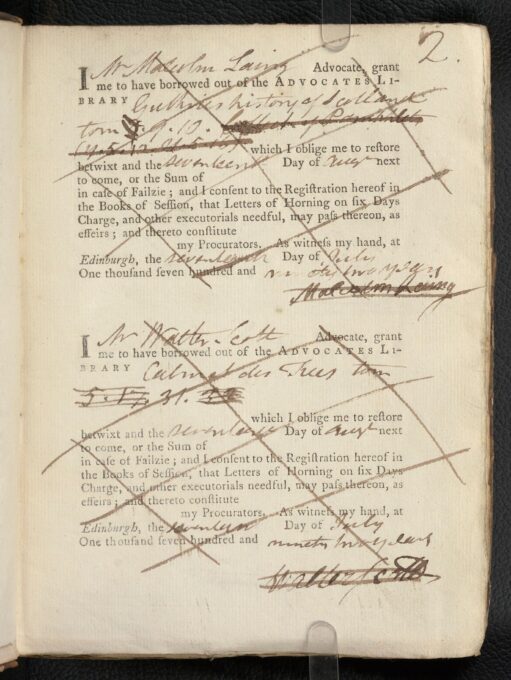
Scott studied at the Royal High School and the University before being admitted advocate on 11 July 1792. On 17 July, he borrowed his first books from the Advocates Library, four volumes of Le Cabinet des Fées, a collection of French fairy tales. Alongside the literary accomplishments that made him famous, Scott had a long legal career, serving as Sheriff of Selkirk from 1799 and Clerk of Session from 1806.
|
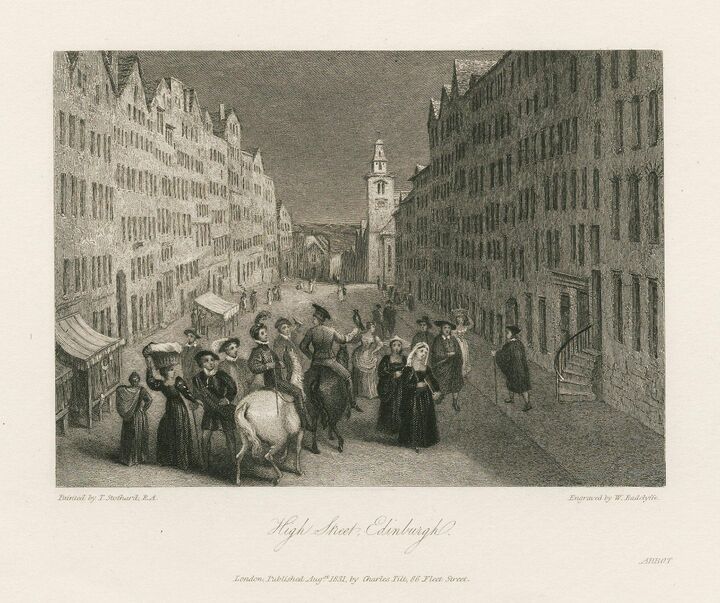
Scott began his literary career as a collector of stories and ballads. Minstrelsy of the Scottish Border appeared in 1802. Scott’s own poetry, including The Lay of the Last Minstrel (1805) and The Lady of the Lake (1810) established him as a poet.
An anonymous novel called Waverley appeared in 1814. Scott’s authorship of the story of a young Englishman caught up in the Jacobite Rebellion of 1745 was soon known. The ‘Author of Waverley’ became a literary phenomenon, his works eagerly anticipated across Scotland and beyond.
|
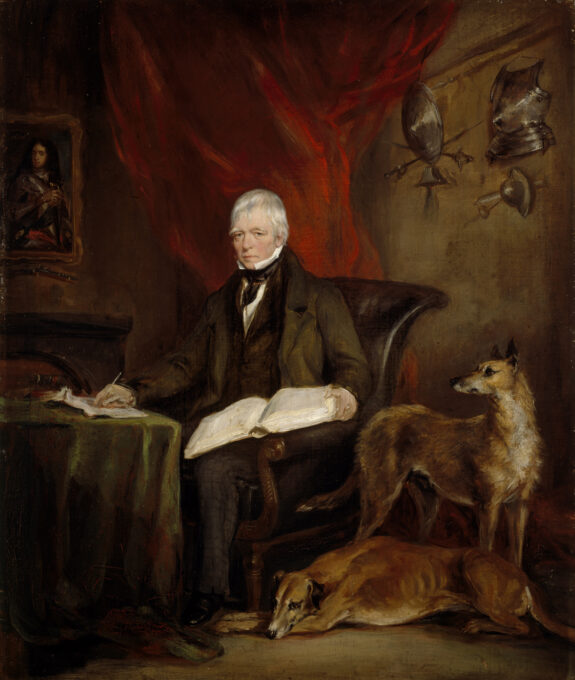
Scott was an active literary critic, providing reviews for the Edinburgh Review, Blackwood’s Edinburgh Magazine, and the Quarterly Review. He was a perceptive commentator on works by Robert Burns, Lord Byron, Mary Shelley, and Jane Austen and even honestly reviewed his own Tales of my Landlord. He had close connections to the Edinburgh Review circle, many of whom he had met as fellow pupils of the Royal High School.
Listen below to Katie Halsey (University of Stirling) read an excerpt from Sir Walter Scott’s critique of Jane Austen’s Emma from the Quarterly Review issued in March 1816.
|
|
|
